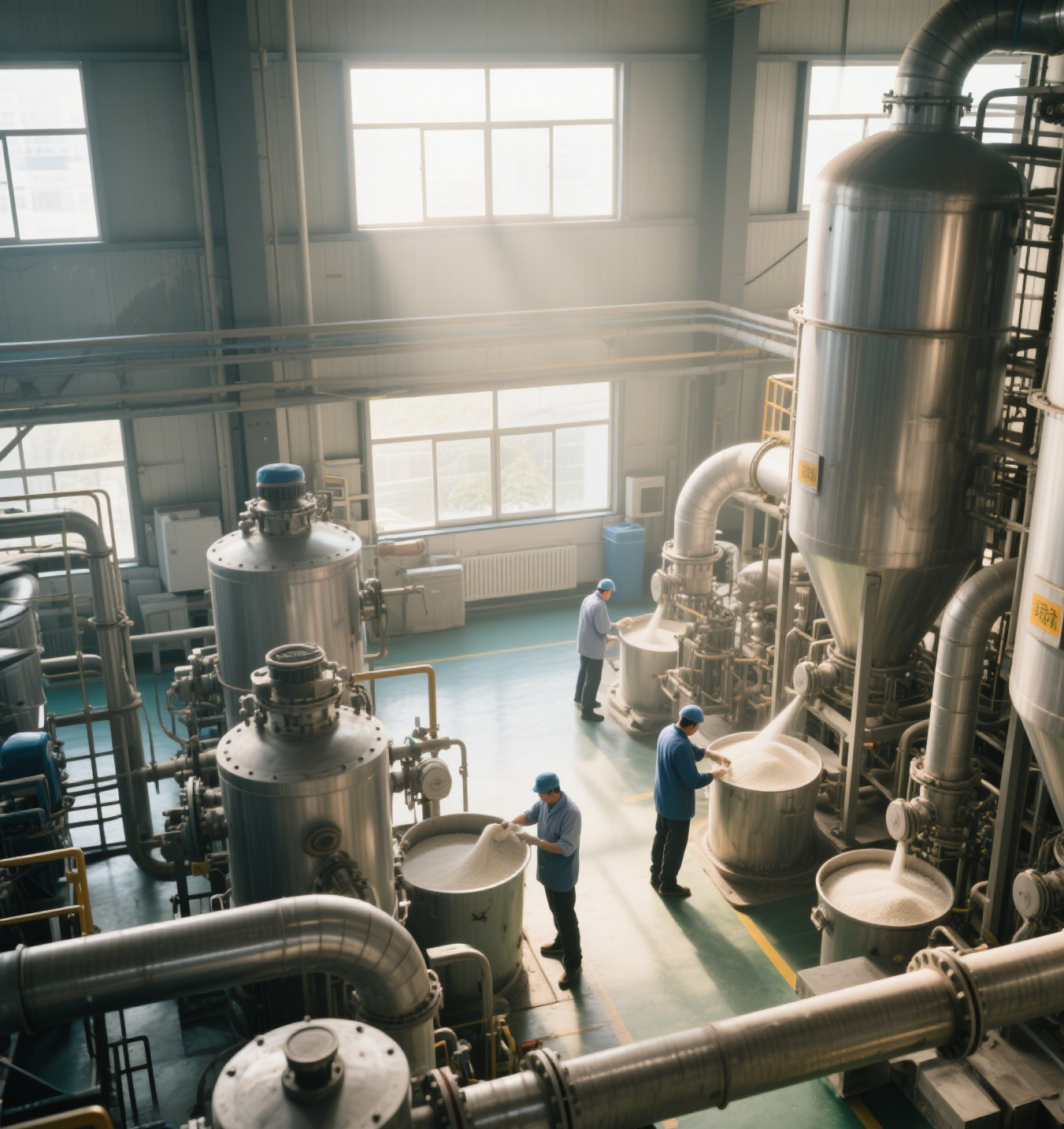monosodium glutamate factory
A monosodium glutamate (MSG) factory represents a state-of-the-art facility dedicated to producing this widely used flavor enhancer through fermentation processes. The factory incorporates advanced biotechnology and automated production systems to convert raw materials, primarily corn starch or sugar cane, into pure MSG crystals. The facility features multiple specialized sections, including fermentation tanks where bacterial cultures convert glucose into glutamic acid, filtration systems for removing impurities, crystallization chambers for forming MSG crystals, and quality control laboratories ensuring product consistency. Modern MSG factories employ sophisticated control systems to maintain optimal temperature, pH levels, and other critical parameters throughout the production process. The facility also includes environmental control measures to manage waste products and ensure sustainable production practices. Storage areas are equipped with climate control systems to maintain product integrity, while packaging lines utilize automated systems for efficient product handling. These factories typically operate 24/7, with production capacities ranging from several hundred to thousands of tons annually, serving both domestic and international markets. The integration of digital monitoring systems allows for real-time process optimization and quality assurance, ensuring consistent product quality while maximizing operational efficiency.


